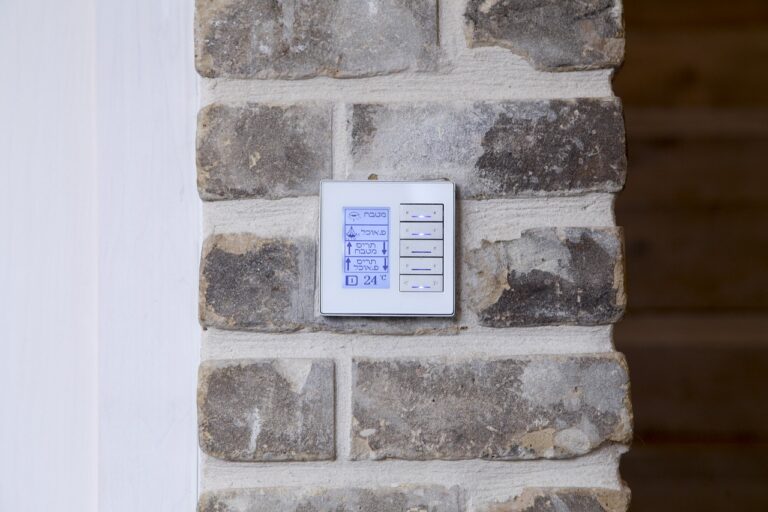Understanding the Environmental Impact of Driveway Materials: Allpannel com, Play 99 exch, Gold id 365
allpannel com, play 99 exch, gold id 365: When it comes to installing a new driveway or replacing an existing one, there are many different materials to choose from. Each material has its own unique set of benefits and drawbacks, but one factor that is often overlooked is the environmental impact of driveway materials.
Understanding the environmental impact of driveway materials is crucial for making an informed decision that aligns with your values and sustainability goals. In this blog post, we will explore the environmental impact of some common driveway materials and provide guidance on choosing the most eco-friendly option for your home.
**Factors to Consider**
Before we dive into specific driveway materials, let’s take a step back and consider the factors that contribute to the environmental impact of a driveway material. Some key factors to consider include:
– **Resource extraction**: The process of extracting raw materials for driveway construction can have a significant impact on the environment, including habitat destruction, water pollution, and greenhouse gas emissions.
– **Manufacturing process**: The manufacturing process of driveway materials often involves energy-intensive operations that contribute to air and water pollution.
– **Installation and maintenance**: The equipment and machinery used to install and maintain driveways can have an impact on air quality and noise pollution.
– **Durability and longevity**: Choosing a durable driveway material can reduce the need for frequent repairs and replacements, which can help reduce overall environmental impact.
– **End-of-life disposal**: Once a driveway reaches the end of its lifespan, the disposal of the material can have a significant impact on the environment, depending on how it is handled.
**Common Driveway Materials**
Now let’s take a look at some common driveway materials and their environmental impact:
1. **Asphalt**: Asphalt is a popular choice for driveways due to its affordability and durability. However, the production of asphalt involves the extraction of petroleum, a non-renewable resource, and the manufacturing process emits greenhouse gases. Asphalt driveways also require regular maintenance and may need to be replaced every 10-20 years, resulting in a significant environmental impact.
2. **Concrete**: Concrete driveways are known for their strength and longevity. However, the production of concrete involves high energy consumption and emissions of carbon dioxide. Concrete driveways can also contribute to urban heat island effect due to their heat-absorbing properties.
3. **Gravel**: Gravel driveways are a more environmentally friendly option compared to asphalt and concrete since they require less energy and resources to install. However, gravel driveways can contribute to sediment runoff and water pollution if not properly maintained.
4. **Pavers**: Paver driveways are a popular choice for homeowners looking for a customizable and aesthetic option. Pavers are typically made from concrete or clay, both of which have environmental drawbacks in terms of resource extraction and manufacturing processes. However, pavers are often more durable than other options and can be reused or recycled.
5. **Permeable Pavers**: Permeable pavers are designed to allow water to infiltrate through the surface, reducing stormwater runoff and promoting groundwater recharge. This can help mitigate flooding and erosion, making them a more environmentally friendly option compared to traditional pavers.
**Choosing an Eco-Friendly Driveway Material**
When selecting a driveway material, it’s essential to consider the environmental impact of each option and choose the most sustainable choice for your home. Here are some tips for choosing an eco-friendly driveway material:
– **Use recycled materials**: Look for driveway materials made from recycled content, such as recycled asphalt or recycled concrete, to reduce the impact of resource extraction and manufacturing.
– **Prioritize durability**: Choose a durable driveway material that will last for many years without the need for frequent repairs or replacements. This can help reduce the overall environmental impact of your driveway over its lifespan.
– **Consider permeability**: Permeable driveway materials, such as gravel or permeable pavers, can help reduce stormwater runoff and promote groundwater recharge, making them a more environmentally friendly option.
– **Choose locally sourced materials**: By using locally sourced materials for your driveway construction, you can reduce the environmental impact of transportation and support the local economy.
By considering these factors and tips, you can make a more informed decision when choosing a driveway material that aligns with your environmental values and sustainability goals.
**FAQs**
**Q: Are gravel driveways more environmentally friendly than asphalt or concrete?**
A: Gravel driveways can be a more environmentally friendly option compared to asphalt or concrete since they require less energy and resources to install. However, proper maintenance is crucial to prevent issues such as sediment runoff and water pollution.
**Q: How can I dispose of an old driveway in an eco-friendly way?**
A: When disposing of an old driveway, consider recycling or repurposing the materials if possible. Many concrete and asphalt materials can be crushed and reused in new construction projects, reducing the need for virgin materials.
**Q: Are permeable pavers a good choice for reducing stormwater runoff?**
A: Yes, permeable pavers are designed to allow water to infiltrate through the surface, reducing stormwater runoff and promoting groundwater recharge. This can help mitigate flooding and erosion in your area.
In conclusion, understanding the environmental impact of driveway materials is essential for making a sustainable choice for your home. By considering factors such as resource extraction, manufacturing processes, durability, and disposal methods, you can choose an eco-friendly driveway material that aligns with your values and minimizes your environmental footprint.







